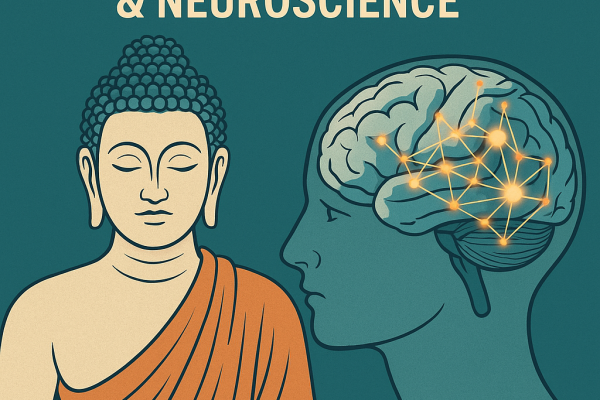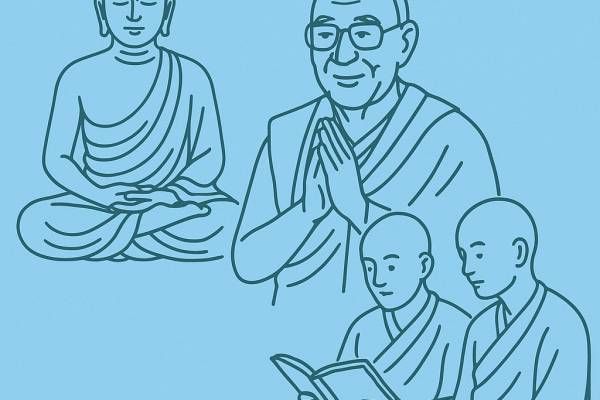
Buddhist Psychology & Neuroscience: Where Ancient Wisdom Meets Modern Science
In the last few decades, scientists have begun to confirm what Buddhist monks and meditators have known for over 2,500 years:The mind can be trained. Suffering can be transformed. Awareness changes the brain. From Buddhist models of the mind like the Abhidhamma to the latest discoveries in neuroscience and mindfulness research, a powerful bridge is forming — offering new hope for healing trauma, depression, anxiety, and addiction. Let’s explore how Buddhist psychology and neuroscience are aligning in profound, life-changing ways. What Is Buddhist Psychology? Unlike Western psychology, which often focuses on diagnosing disorders and treating symptoms, Buddhist psychology is fundamentally ethical and experiential. It sees the mind not as a fixed thing, but as a dynamic process shaped by intention, perception, and karma. At its core, Buddhist psychology aims at liberation — freeing the mind from greed, hatred, and delusion through practices like mindfulness (sati), concentration (samadhi), and wisdom (paññā). The Abhidhamma: A Map of Consciousness The Abhidhamma Pitaka, one of the core texts in Theravāda Buddhism, offers a deep, analytical model of the mind. It breaks consciousness into: It categorizes emotions, thoughts, and mental habits with remarkable precision — long before modern psychology or neuroscience emerged. Today, cognitive science is beginning to mirror this complexity, using fMRI and neuroimaging to identify neural correlates of emotion, attention systems, and habit loops — echoing the Buddhist insight that the mind is conditioned, impermanent, and trainable. Neuroscience Meets Mindfulness In clinical and lab settings worldwide, Buddhist meditation practices are being studied for their powerful effects on the brain. The science is clear: Meditation for Trauma, Depression & Addiction Psychologists and neuroscientists are now using Buddhist-inspired techniques in treatments for: In all these cases, the emphasis is not just on symptom reduction — but on transforming one’s relationship to pain, emotion, and the self. Karma, Neuroplasticity & the Changing Brain A core idea in Buddhist psychology is that the mind is not static. We are what we repeatedly think and do. This aligns beautifully with the modern concept of neuroplasticity — the brain’s ability to rewire itself through repetition and intention. The Buddhist path is, in this sense, a science of mind: a step-by-step method for rewiring the brain toward compassion, clarity, and freedom. The Promise of Integration The convergence of Buddhism and neuroscience is not about merging belief systems, but about deepening our understanding of what it means to be human.Therapists, researchers, monks, and meditators are now co-creating a world where contemplative wisdom and cognitive science support one another — from hospitals to classrooms to meditation centers. This integration gives rise to: Final Thoughts: A Mindful Revolution As Buddhist psychology and neuroscience continue to evolve side by side, the message is hopeful and urgent:We can train the mind. We can reshape the brain. And we can heal — not just individually, but collectively. In a world grappling with mental health crises and digital overload, the ancient insights of the Buddha offer not just relief, but a radical path of inner transformation.





